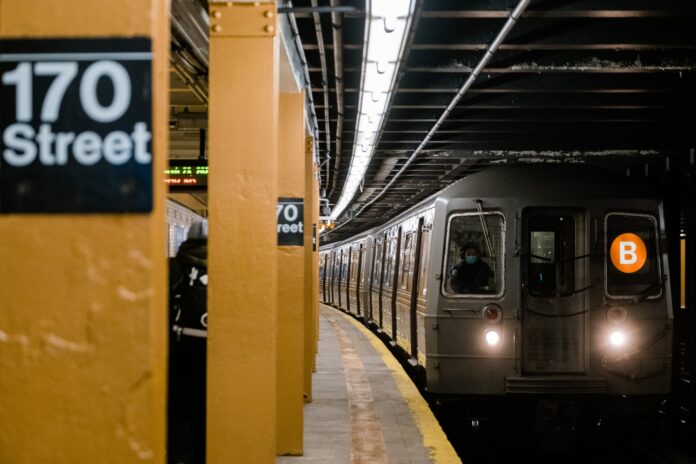By Sujatha Gidla, a New York City subway conductor
We work at the epicenter of the epicenter, with a mortality rate substantially higher than that of first responders. Common sense tells you that subway trains and platforms are giant vectors of this virus. We breathe it in along with steel dust. As a conductor, when I stick my head out of the car to perform the required platform observation, passengers in many stations are standing 10 inches from my face. At other times, they lean into the cab to ask questions. Bus drivers, whose passengers enter right in front of them, are even worse off.
My co-workers want doors locked on the two cars where the crew rides. Bus drivers want to let passengers enter through the back doors. We want hazard pay and family leave for child care.
In mid-March, a bulletin came out mandating that conductors make an announcement every 15 minutes. Wash hands, soap and water, sanitizer, elbow-sneeze. “Together we can help keep New York safe.”
The irony was that we didn’t have soap and water. At my terminal at that time, the restrooms were closed for three days after a water main break. Most employee restrooms are in similarly bad shape. Crew rooms are packed.
Finally, the M.T.A. agreed to supply us with personal protective equipment. When signing in, we get an N95 mask and three small packets of wipes the size of those used before a shot at the doctor’s office. This is meant to last three days. We also get a small container to fill with hand sanitizer from a bottle in the dispatcher’s office.
On March 27, I woke up at 6 a.m. to go to the bathroom and collapsed. I made a quick call to a close friend and then dialed 911. An ambulance took me to NYU Langone Medical Center, where I was treated and discharged. I stayed isolated for 14 days, after which I felt better. My co-workers told me about a place where I could get tested. On April 15, I tested positive. Further quarantine. My direct-deposit statement shows $692: less than half my wages for the first pay period and nothing thereafter. (I had used up all of my sick days).
The third death I heard about was a black co-worker I used to see every day who once saw me reading Michelle Alexander’s “The New Jim Crow.” He wanted to know why a woman from India was interested in the condition of black people. From then on, whenever we ran into each other we hugged and cheek-kissed.
The conditions created by the pandemic drive home the fact that we essential workers — workers in general — are the ones who keep the social order from sinking into chaos. Yet we are treated with the utmost disrespect, as though we’re expendable. Since March 27, at least 98 New York transit workers have died of Covid-19. My co-workers say bitterly: “We are not essential. We are sacrificial.”
Gidla, S. (2020, May 5). ‘We Are Not Essential. We Are Sacrificial.’. The New York Times. https://www.nytimes.com/2020/05/05/opinion/coronavirus-nyc-subway.html?action=click&module=RelatedLinks&pgtype=Article
Analysis-
This article is extremely relevant to my research topic, as I want to focus on essential workers in the transportation sector. Gidla describes her experiences as an essential worker working as a New York City subway conductor. Gidla describes her working conditions, the deaths of her coworkers, lack of support from higher up, and general concerns with interacting with people especially with the necessary PPE. I found her concerns and experiences have added to my understanding of what it is like working in transportation during the pandemic. She addresses the lack of support from the M.T.A. and touches on how much she is paid, which is very little especially considering the dangers of this job. Overall, this article allows me to see the issues essential workers are facing due to COVID-19 and gives me insight on the needs of someone working in transportation. As for a few things I want to consider: How can we allow for safe communication between the passenger and conductor? How can we create a clean station that keeps track of passengers and their safety (in relation to the deaths witnessed in the subway)? Why aren’t essential workers receiving hazard pay, more sick days, more resources, etc. (Federal, public/private issue)?




